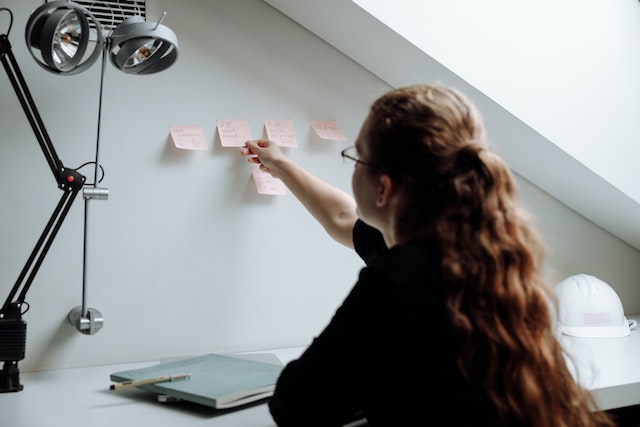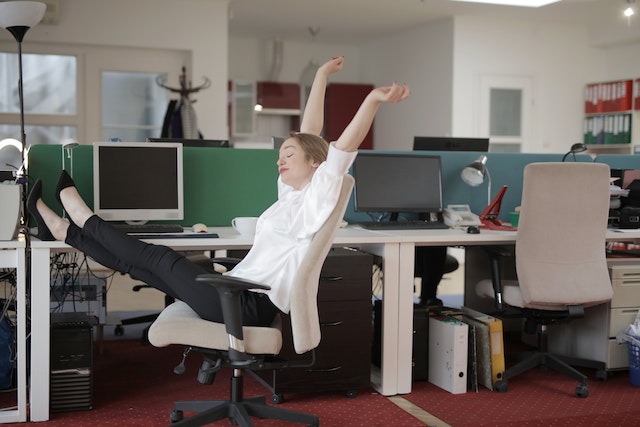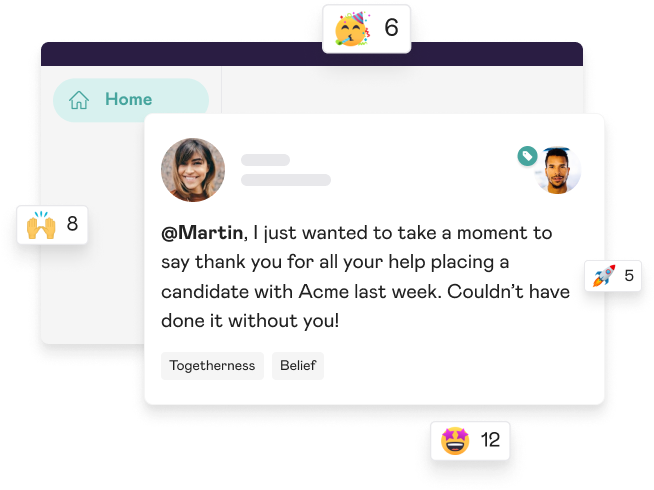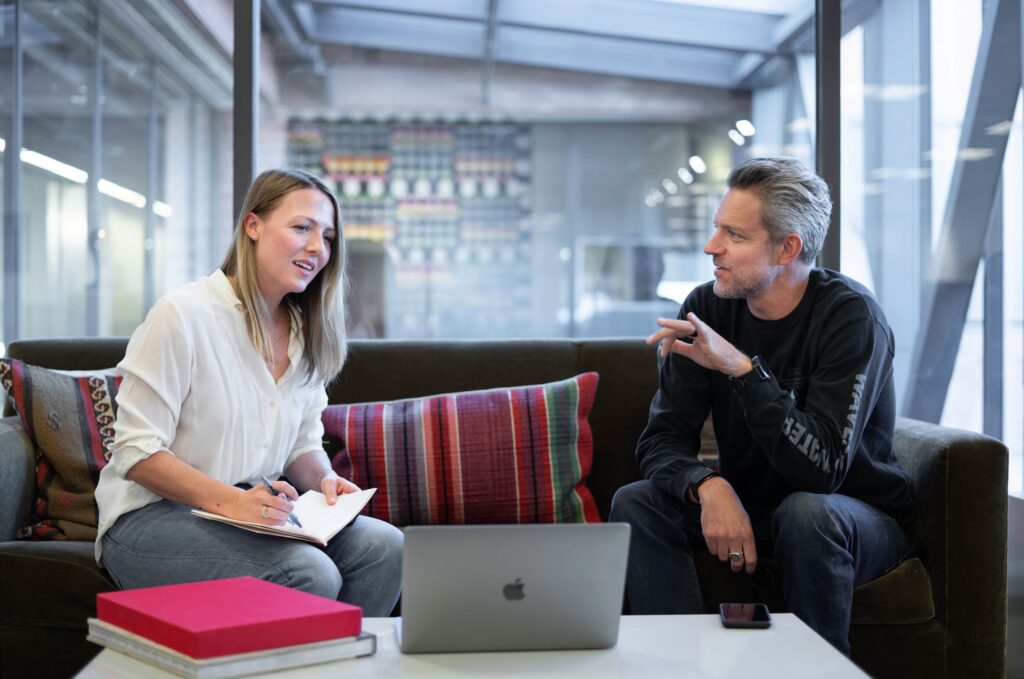Everyone wants to be consistently productive at work, and it’s not impossible to achieve. There are a number of ways to help you get and stay focused. These will increase your productivity while helping you stay happy and healthy too.
Why is it important to be productive at work?
Productivity is key in helping organisations and individuals achieve their goals. It can also significantly impact the way you feel about your time at work. The last thing you want is to put in the hours without actually achieving anything. Upping your productivity levels can boost your sense of accomplishment while also creating greater output for your company.
Why is it so challenging to stay productive?
Many things can stand in the way of productivity, from the personal to the professional. For example, 29% of the UK workforce (an estimated 8.2 million people) say cost of living-related financial worries have negatively impacted their productivity at work, according to a Censuswide study.
Also affecting productivity were poor work-life balance according to 23% of the employees surveyed. Mental health issues accounted for 22%.
These concerns could be impacting output and results. Employee productivity in the US dropped by 2.7% in the first quarter of 2023 compared to the same period in 2022.

Top ways to become more productive
Productivity shouldn’t be something you try and force upon yourself. Instead, it should naturally result from small and realistic changes to the way that you organise your day.
Build planning time into your day
To stay on top of everything you need to do, it’s best to give yourself time to actually assess what’s on your plate and how best to manage it. Build planning time into your day. You could do that in one fifteen-minute chunk first thing, planning after lunch, or at the end of the day.
A morning huddle with your team can also be a great way for you to overcome any potential hurdles. A morning huddle is also a great place to let people know if you’re going to block out time that day for important tasks. Clear communication is key for getting you the support and time you need.
Set clear goals and priorities
Staying busy is one thing, making sure you’re working towards a worthwhile goal is another. Identify goals and find ways to contribute to them for more productive use of time.
Try setting SMART goals and get to grips with identifying the kind of goals that are achievable and timely. This can also help you prioritise and create a balance between short- and long-term wins.
Break daunting tasks down into chunks
We all know how demoralising a seemingly impossible task feels. One of the best ways to tackle it is to break those big tasks down into smaller and more manageable parts.
This allows you to focus on something small and reasonably easy to handle, while still working towards the bigger picture. Set yourself a series of small goals and tick them off one by one. There are helpful methods like the Eisenhower Matrix and the Pomodoro Technique. They help prioritise tasks and improve focus on time.
The Pomodoro Technique
- Choose one task to focus on
- Set a timer for 25 minutes and work only on that task
- Take a five-minute break
- Then set your time for 25 minutes again, up to four times
- Take a longer break of about 15 to 30 minutes
Use software to track your progress
Project management software can be really useful in helping you see how well you’re progressing. Some people really appreciate having a visual breakdown of how much work they’ve done and still have to do.
Tools like Monday.com are also great for creating subtasks, colour coding various elements and setting deadlines. This can help you stay accountable and is also handy for managing team workload alongside your own.
Get used to sticking to a task
Focusing on one task at a time can do wonders for your productivity. Multitasking is a big drain on your cognitive function and one scientific study found that only 2.5% of people could switch between tasks without it impacting their performance.
Stick to one task wherever possible and if you have several tasks of a similar nature, be sure to group them and get them done in one chunk.
Take regular breaks
To be as productive as possible, you need to factor in a little down time. A Staples survey found that 85% of employees believed taking regular breaks during the day would boost their productivity, but one in five avoided them due to guilt.
The truth is that breaks are essential for helping you maintain focus. They give your brain time to rest and unwind, allowing you to return to your task refreshed and more effective. Breaks can also help you put problems in perspective and be essential in avoiding feelings of burnout.

Minimise distractions
In addition to trying to focus on one task at a time, try to minimise distractions. When something takes you away from the task at hand, you will spend valuable time getting back into the zone. Easy tips are to:
- Turn off notifications for your email or comms channels
- Use website blockers if you’re often tempted to browse
- Turn on ‘do not disturb’ mode in Slack or MS Teams
- Go dark completely and unplug from the web (be sure to let your team know!)
You could also experiment with the ‘two-minute rule.’ This is a technique coined by David Allen in his book, Getting Things Done. He suggests prioritising tasks that take two minutes or less, so as to save yourself from distraction down the line.
“If the next action can be done in two minutes or less, do it when you first pick the item up…The rationale for the two-minute rule is that it’s more or less the point where it starts taking longer to store and track an item than to deal with it the first time it’s in your hands—in other words, it’s the efficiency cutoff.”
David Allen, Getting Things Done
Create healthy habits
Taking the time to look after yourself can also result in enhanced productivity. Listening to calming music, eating enough food, and going outside for fresh air can positively impact your health. These activities can help improve your overall well-being.
Calming music has a soothing effect on your mind and can reduce stress levels. Eating enough food, rather than relying solely on coffee, ensures that your body receives the necessary nutrients for optimal functioning. Going outside for fresh air allows you to breathe in clean oxygen and rejuvenate your body.
By incorporating these activities into your daily routine, you can enhance your health and well-being. Make sure you’re doing everything you can to foster a healthy work environment for yourself and the rest of your team.
Know your peak productivity times
Some people prefer to do focused work first thing in the morning and then book all their meetings for the afternoons. Knowing your peak productivity times can greatly improve your efficiency and effectiveness at work. Understanding when you are most alert and focused allows you to schedule your most important tasks during those times, ensuring that you can give them your full attention and produce high-quality work.
For those who thrive in the morning, starting the day with focused work can set a positive tone for the rest of the day. By tackling challenging projects or tasks early on, you can take advantage of your fresh mind and energy levels. This can lead to a sense of accomplishment and motivation that carries you through the rest of the day.
On the other hand, if you find that your energy levels peak in the afternoon, it may be beneficial to schedule meetings or collaborative work during that time. This allows you to leverage your social and communication skills when you are at your best, making interactions with colleagues or clients more productive and engaging.
Of course, everyone’s peak productivity times may vary, so it’s important to pay attention to your own body and mind. Take note of when you feel most alert, focused, and energised throughout the day. Experiment with different schedules and routines to find what works best for you.
Create a productivity enhancing workspace
In addition to knowing your peak productivity times, it’s also important to create a work environment that supports your well-being. This includes having a comfortable and organised workspace, minimising distractions, and taking regular breaks to rest and recharge.
It’s much easier to focus and get work done when you’re in a space that’s working with you, rather than against you. Here are a few top tips for enhancing your space:
- Declutter as much as you can, don’t litter your desk with post-its and to dos
- Ensure you have a place to work that’s distraction free when needed
- Choose a workspace with natural light and if that’s not possible, get a UV lamp
- Use ergonomic desk furniture that helps you stay comfortable
- Pick up plenty of plants!
Remember, finding the right balance between work and personal life is crucial for overall well-being. While it’s important to be productive and efficient at work, it’s equally important to take care of yourself outside of work. Engaging in activities that bring you joy and relaxation, such as hobbies or spending time with loved ones, can help reduce stress and improve your overall happiness.
By incorporating these strategies into your daily routine, you can create a healthier and more fulfilling work-life balance. Ultimately, taking care of yourself and understanding your peak productivity times will not only benefit your own well-being but also contribute to a more positive and productive work environment for everyone involved.
Transform your culture with Mo

- Improve employee engagement scores
- Reduce employee churn
- Build a collaborative culture
Mo is a new kind of reward and recognition platform that makes it easy for busy managers to meaningfully recognise, engage and connect with their teams.
We equip managers with weekly suggestions to energise and connect with their people, help teams build habits of recognition into their day-to-day rhythms and go beyond simple rewards as a way to motivate staff.
Join companies like SHL, OVO Energy and William Hill in delivering meaningful improvement.




